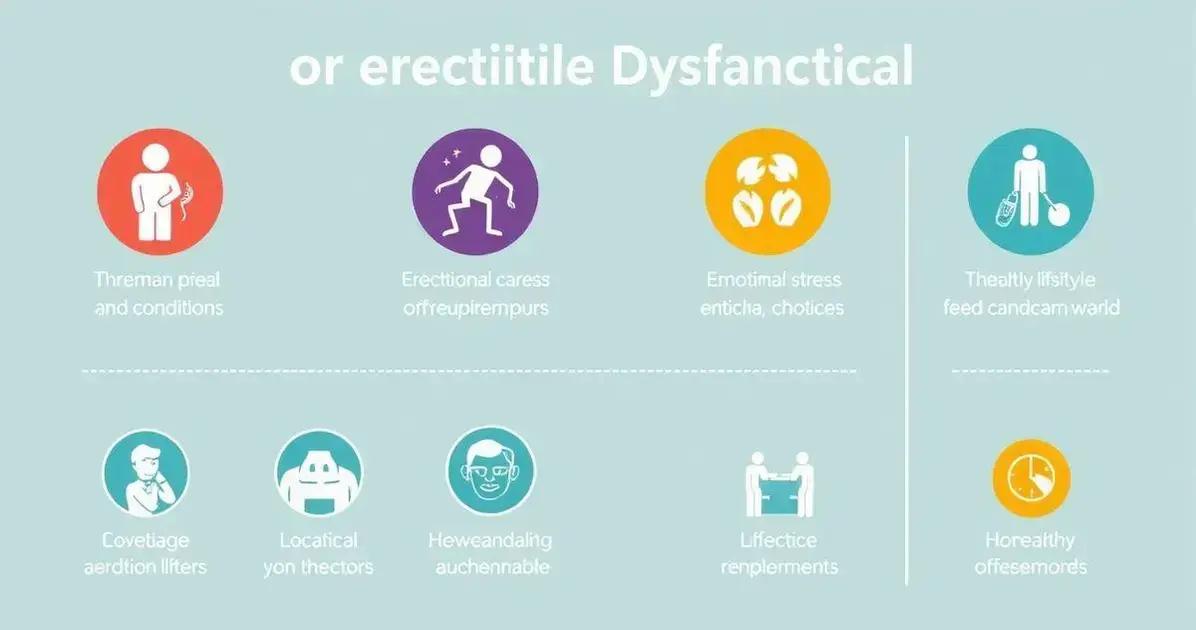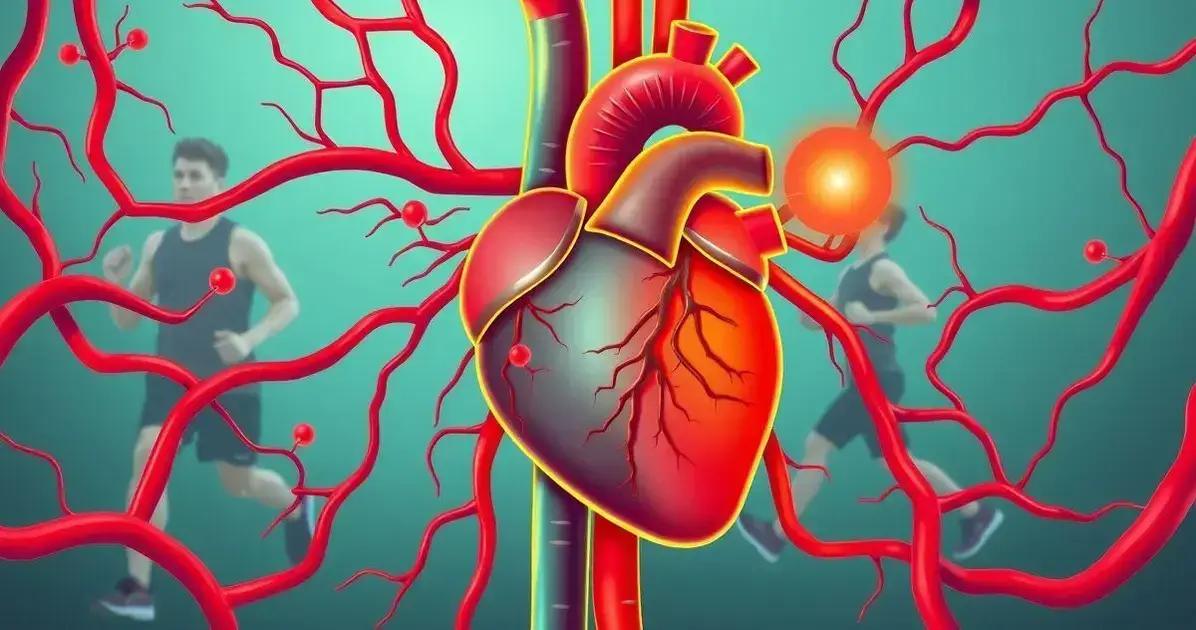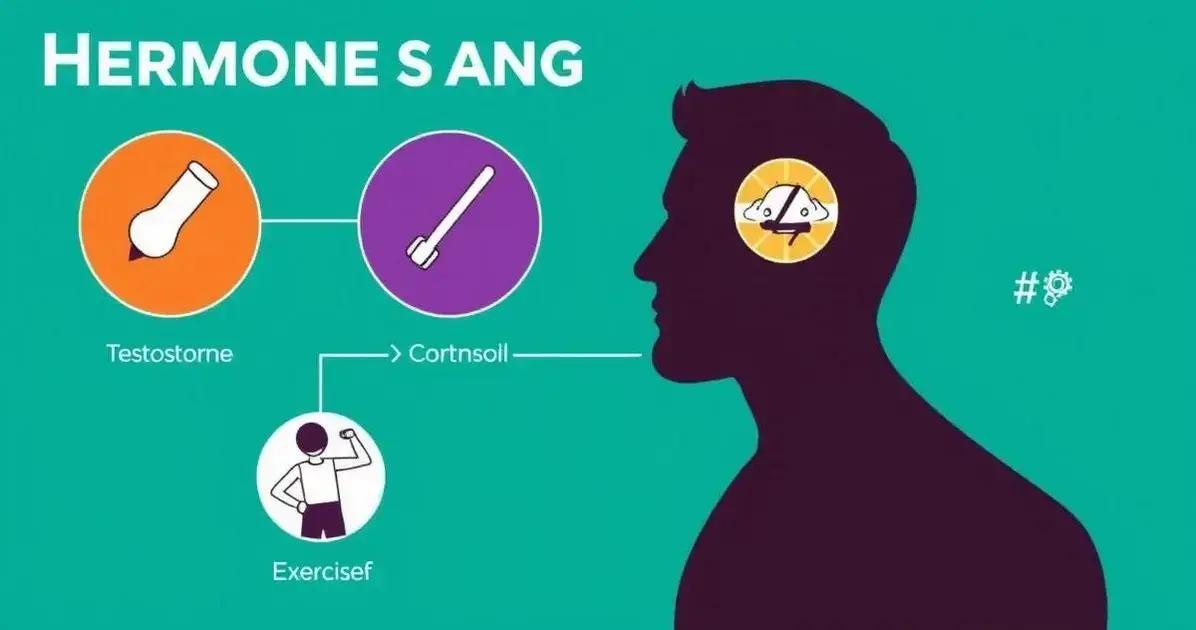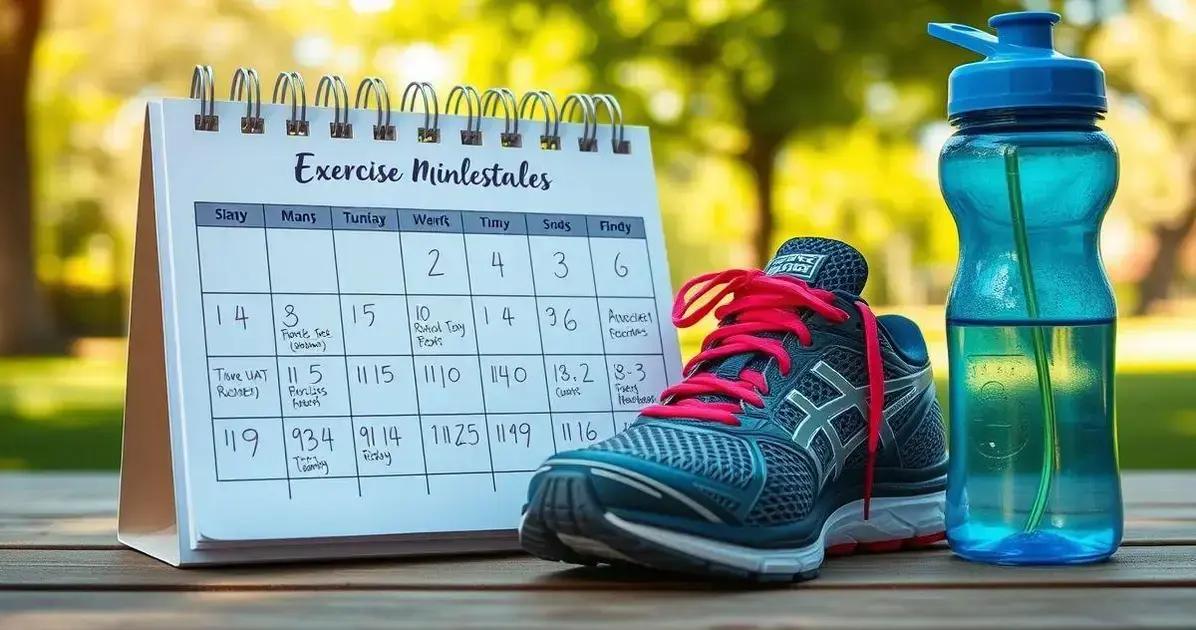Consistent exercise plays a crucial role in preventing erectile dysfunction by improving blood flow, balancing hormones, and enhancing mental health. Regular physical activity, including aerobic and strength training, not only benefits sexual health but also supports overall well-being, making it essential for maintaining healthy erectile function.
Are you curious about how exercise can impact erectile dysfunction? Understanding the effectiveness of regular workouts can be a game-changer in maintaining sexual health. Recent studies have shown that consistent exercise plays a crucial role in preventing erectile dysfunction, benefiting physical and mental well-being. In this article, we will uncover 7 reasons why maintaining a regular exercise regimen is essential for preventing ED.
Understanding Erectile Dysfunction

Erectile dysfunction (ED) is a condition where a man has difficulty achieving or maintaining an erection suitable for sexual performance. It can affect men of all ages but is more common in older adults. Various factors contribute to this condition including physiological, psychological, and lifestyle elements.
Common Causes of Erectile Dysfunction
ED can be caused by several issues. Medical conditions such as diabetes, high blood pressure, and heart disease can affect blood flow and nerve function, leading to erectile difficulties. Psychological factors like stress, anxiety, and depression can also play a significant role. When a person is under tension, it can hinder sexual arousal, making it difficult to achieve an erection.
Impact of Lifestyle Choices
Certain lifestyle choices can increase the risk of developing ED, such as smoking, excessive alcohol consumption, and lack of physical activity. These factors can contribute to poor vascular health, which is crucial for achieving and maintaining an erection.
Understanding the causes of erectile dysfunction is essential in addressing the issue effectively. Recognizing that physical health, psychological factors, and lifestyle choices all contribute can empower individuals to make changes that improve their sexual health.
How Exercise Affects Blood Flow

Exercise plays a crucial role in improving blood flow throughout the body. When you engage in physical activity, your heart pumps faster, leading to increased circulation. This enhanced blood flow is vital for maintaining healthy erectile function.
How Exercise Benefits Blood Circulation
Through regular exercise, the body develops a network of blood vessels that support enhanced circulation. This includes both arterioles and capillaries that expand and adapt to meet increased oxygen needs during physical activity. Improved blood circulation helps deliver essential nutrients and oxygen to every organ, including the reproductive system.
The Impact on Erectile Function
Having good blood flow is essential for achieving and maintaining an erection. Exercise can help prevent conditions such as atherosclerosis, which is the hardening of the arteries. Harder arteries can restrict blood flow and lead to erectile dysfunction. By engaging in cardiovascular activities like running, swimming, or cycling, men can increase their heart health and reduce the risk of ED.
Types of Effective Exercises
Different types of exercises can have varying effects on blood flow. Aerobic exercises are particularly beneficial for improving cardiovascular health. Strength training also contributes by increasing overall body strength and promoting good hormonal balance. Flexibility and stretching exercises enhance blood flow to the pelvic area, further assisting erectile function.
The Role of Hormones in ED

Hormones play a significant role in erectile dysfunction (ED) and overall sexual health. They help regulate various bodily functions, including mood, energy levels, and sexual motivation. The most critical hormones involved in sexual function for men are testosterone and others that impact blood flow and mood.
Testosterone and Sexual Health
Testosterone is the primary male sex hormone. It is essential for developing and maintaining sexual characteristics. Low testosterone levels can lead to reduced libido and difficulty achieving erections. Regular exercise is known to boost testosterone levels, potentially improving sexual function.
Other Hormonal Influences
In addition to testosterone, other hormones such as estrogen and prolactin also contribute to ED. An imbalance in these hormones can lead to sexual dysfunction. For example, elevated levels of prolactin can interfere with libido and erectile function.
The Connection Between Hormones and Stress
Stress can also affect hormone levels. Increased stress releases cortisol, a hormone that can lead to imbalances in testosterone and other hormones, negatively impacting erectile function. Engaging in consistent exercise helps reduce stress levels and can promote better hormone balance.
Mental Health and Exercise

Mental health directly influences sexual health, including the occurrence of erectile dysfunction (ED). Psychological factors such as stress, anxiety, and depression can significantly affect sexual performance.
The Connection Between Mental Health and ED
When a person experiences anxiety or depression, their mind can become preoccupied, leading to difficulties in achieving and maintaining an erection. These mental health issues can stem from a variety of sources, including personal relationships, work stress, or life changes.
How Exercise Benefits Mental Health
Regular physical activity is known to improve mental health by releasing endorphins, which are chemicals in the brain that act as natural painkillers and mood lifters. Engaging in consistent exercise helps reduce symptoms of anxiety and depression. This positive shift in mental health can enhance sexual function, leading to a more fulfilling intimate relationship.
Creating a Positive Feedback Loop
By improving mental wellness, exercise can create a positive feedback loop. As a person’s mood improves, they may feel more confident and less stressed, leading to better sexual performance. This can further encourage them to continue exercising, reinforcing the benefits for both mental and sexual health.
Creating a Consistent Exercise Routine

Creating a consistent exercise routine is essential for preventing erectile dysfunction. A regular workout schedule promotes good health and helps maintain optimal blood flow and hormone balance.
Setting Realistic Goals
Start by setting achievable fitness goals. Consider your current fitness level, available time, and preferences. Small, manageable goals can help you stay motivated. For example, aim to exercise for 30 minutes a day, three times a week, and gradually increase the frequency and duration as you become fitter.
Choosing the Right Types of Exercise
Focus on a mix of aerobic exercises, strength training, and flexibility workouts. Activities like walking, jogging, swimming, and cycling improve cardiovascular health. Strength training builds muscle, while flexibility exercises enhance mobility. A balanced routine incorporates all elements for overall well-being.
Finding a Workout Partner
Having a workout partner can make exercising more enjoyable and help keep you accountable. Whether it’s a friend, family member, or a gym buddy, sharing your fitness journey with someone can boost motivation and commitment to a consistent routine.
Tracking Progress
Keeping track of your workouts can help maintain motivation. Consider using a fitness app or a journal to log your exercises, monitor improvements, and celebrate milestones. Seeing progress can encourage you to stay committed to your exercise routine.
Staying Flexible
Life can be unpredictable, so it’s important to remain flexible with your routine. If you miss a workout, don’t be too hard on yourself. Instead, focus on getting back on track as soon as possible. Adapt your schedule to fit your lifestyle, ensuring that exercise remains a priority.
In Conclusion: The Importance of Consistent Exercise
Consistent exercise plays a vital role in preventing erectile dysfunction and promoting overall sexual health. By improving blood flow, balancing hormones, and enhancing mental well-being, regular physical activity positively impacts sexual performance.
Establishing a balanced and enjoyable exercise routine can lead to lasting health benefits. By setting realistic goals, mixing different types of workouts, and staying flexible with your routine, you can maintain motivation and ensure regular participation in physical activity.
Ultimately, prioritizing consistent exercise not only enhances physical fitness but also contributes to better mental health and improved intimacy in relationships. Take the first step towards a healthier lifestyle today!
FAQ – Frequently Asked Questions about Preventing Erectile Dysfunction with Exercise
How does exercise help prevent erectile dysfunction?
Exercise improves blood flow, balances hormones, and enhances mental health, all of which are essential for maintaining healthy erectile function.
What types of exercise are best for sexual health?
A mix of aerobic exercises, strength training, and flexibility workouts are best. Activities like running, cycling, or yoga contribute positively to sexual health.
Can mental health impact erectile dysfunction?
Yes, mental health issues such as stress and anxiety can lead to erectile dysfunction by interfering with sexual arousal and performance.
How often should I exercise to see benefits?
Aim for at least 150 minutes of moderate aerobic activity per week, combined with strength training exercises at least twice a week, to see health benefits.
Is it necessary to have a workout partner?
While not necessary, having a workout partner can increase motivation and accountability, making it easier to stick to a consistent exercise routine.
What if I miss a workout?
Don’t be too hard on yourself. Focus on getting back on track as soon as possible, and remember that maintaining consistency is key!













